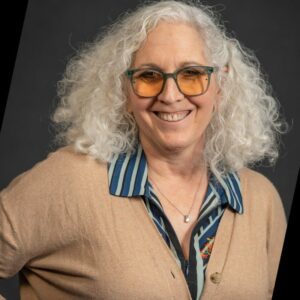
Michelle Strasz, Executive Director for The Capital Area College Access Network, CapCan, interviewed Wow CEO Susan Knoppow for their 2018 summer publication. Wow conducts training workshops for CapCan’s network of high school counselors and college advisors.
Michelle and Susan talked about the importance of the college essay, what colleges are looking for, how to write an effective essay and what parents can do to help their children.
Michelle and Susan talked about the importance of the college essay, what colleges are looking for, how to write an effective essay and what parents can do to help their children.
Here is the interview with Susan:
Michelle: How did How to Write and Effective College Application Essay come about?
Susan: My business partner’s sister, Tami Lifton Manton, was about to start the college process with her son. She asked, “What should I do?” We initially told her she was the parent so stay out of it. Don’t get involved. Her response to us was “Hahaha! You know I’m going to get involved so give me a job.” This made us rethink our messaging and our advice. Our book, How to Write an Effective College Application Essay equips parents with tips and prompts to help their student reflect on what makes them who they are and illustrate their best characteristics. The student version of the book encourages the student to go find an adult they trust to help them with the process. Parents should review, rather than edit. We recommend ways for parents to be useful, mostly helping their child reflect, reviewing with a healthy respect for the child’s written work and asking questions about the essay. If they get confused, or don’t know what to ask, “Why?” is always a good question. They can ask like this: “Tell me more… Why are you telling me this story?”
Why are college application essays important?
Susan: College application essays are important because colleges want to know who the student is, beyond the grades, test scores and activities. The essay is the place to share that, an opportunity to round out the application package. As admission to the nation’s most selective schools becomes increasingly competitive, the college essay rises in significance as well. The essay, or personal statement, provides an opportunity for students to show people who may never meet them just what kind of person they are. It’s value-added, and it can help. Colleges want students to dig deeper, to share their story. Academically, admission officers expect students to do well. But they want more. An essay fills in the qualitative gaps (grades, rigor of curriculum, test scores). For example, they might get applications from three students who are the first chair of violin. The essay will help distinguish between the three to get a better understanding of why a student is in the orchestra. Are they a diligent problem solver who found a way to afford a new violin for high school? Colleges are missing that qualitative information. Colleges want students to tell them something meaningful about them that they cannot find out about through the rest of your application.
Why do essays make students freak out?
Susan: The college essay is arguably the biggest stressor of the college application. It does not need to be so daunting. The problem is students do not understand the prompts, they don’t understand the task, and they have so much bad advice, they don’t know how to write it. And they panic. Shut down. We help students and parents understand the task, and what’s expected, so they can relax. We tell our students that college admissions representatives are real people who want to admit you, not reject you. You are 17; they don’t expect perfection. They will cut you some slack. They don’t expect perfect grammar, and you don’t have to try so hard to be unique. Why? You are unique. Just be yourself. Answer the question. Don’t panic. The task is achievable. You don’t need to be a good writer to nail the college essay. You need simple instructions and a calm place to write.
How important is parent engagement?
Susan: Parents sometimes doubt their child’s ability to do this task effectively. They often edit their child’s voice out of the essay. This does not help admissions get to know the child, nor does it help a child feel confident. A parent who helps too much can diminish a child’s self-worth. The child will think they are not good enough, and so Mom or Dad has to rescue them. They don’t think of that when they mark up those essays. Parents need to understand that they are not the audience for the application or essay, nor is the English teacher or the writer down the street. The admissions officer is the audience, and it is likely the parent has no idea what that person expects from the essay. The best job for any parent of a child applying to college is that of listener and supporter. We say, “Listen to your child and help them find insight into their life experiences. Provide encouragement and stay positive. You will help them best by just talking to them, letting them know what you like about them, and asking them what’s important to them.”
What are college Admissions reps are looking for?
Susan: Reflection! They want an answer to a prompt that showcases a positive trait or characteristic. They want to put a face to the pile of paper. Colleges also want some confirmation that the student knows something about themselves. They want to read personal statements and supplements that sound like a high school student and Illustrate something meaningful about that student. They are not looking for perfect prose. Does the experience a student writes about need to be earth shattering? No. Does it have to illustrate an “aha” moment? Not at all. Just writing about winning a game is not enough. Colleges want to know what students learned about themselves because of the game. Why is that important?
People who help students with essays can help them by
Susan: Encouraging them to reflect before they start writing. Let the student own the process; just be a guide. Listen more; do less. Every student needs to have a purpose for an essay before they start writing. To be effective, an essay must have a theme that answers these two questions: What happened? Why does it matter? Use theme as a review tool.
Please finish this sentence. I am Susan Knoppow. I know…
Susan: Because of my background as an instructional designer and teacher, I know how people learn. I know how much to give a student to do. I know how to train counselors, teachers, and parents to help their students write their essays. I know that students want to please the adults in their life. They get conflicting advice, so they don’t know who they can trust, and they get paralyzed. I will help anyone I train to put this knowledge into practice.
Your final thoughts?
Susan: The competition to get into the nation’s top colleges gets tougher every year, but that’s not because students are smarter or more qualified than they were five or ten years ago. It is a simple matter of impossible math. Year after year, more kids apply for the same number of available spaces at the most selective schools. It’s impossible for them all to get in. The essay becomes more important, too. No essay will vault you over a wall, but it will help you. It’s a numbers’ game, and there is an industry that has built up around the numbers’ game. Don’t feed into the frenzy. It is important for adults and students to set reasonable expectations. A little perspective will help any adult become a better guide for a college applicant.


